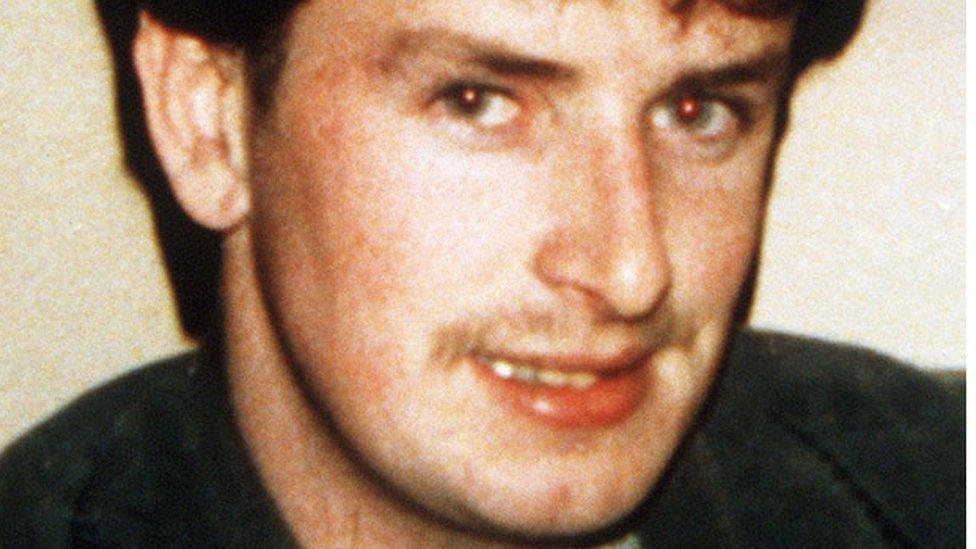Troubles legacy cases set to dominate headlines again in 2022
- Published
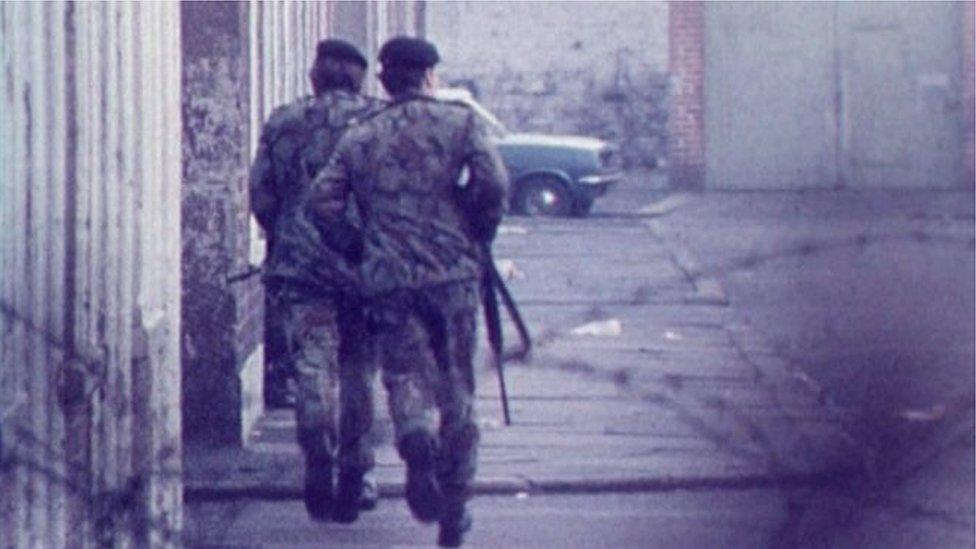
A proposed statute of limitations would end all prosecutions in Troubles-related cases up to April 1998
The UK government has delayed bringing forward controversial Troubles legacy legislation - but does it mean a rethink is taking place?
No bill materialised before Christmas, despite one being promised by late autumn.
It means it will be difficult getting the amnesty plan on to the statute books before the next Stormont assembly election.
And probably most certain of all, it will not be in place before the next trial involving an Army veteran.
To recap: In July, the government proposed drawing a line under the past with a statute of limitations that would mean no more criminal investigations or prosecutions related to the conflict period.
It would apply across the board, to former security force members and paramilitaries alike.
There are about 1,200 unresolved Troubles killings sitting with the Police Service of Northern Ireland's (PSNI) legacy investigations branch.
The government also planned to end all related inquests and civil actions, of which there are about 1,000 in the court system at various stages.
A substitute process of information recovery would be established, with the aim of delivering investigative reports for bereaved families and victims.
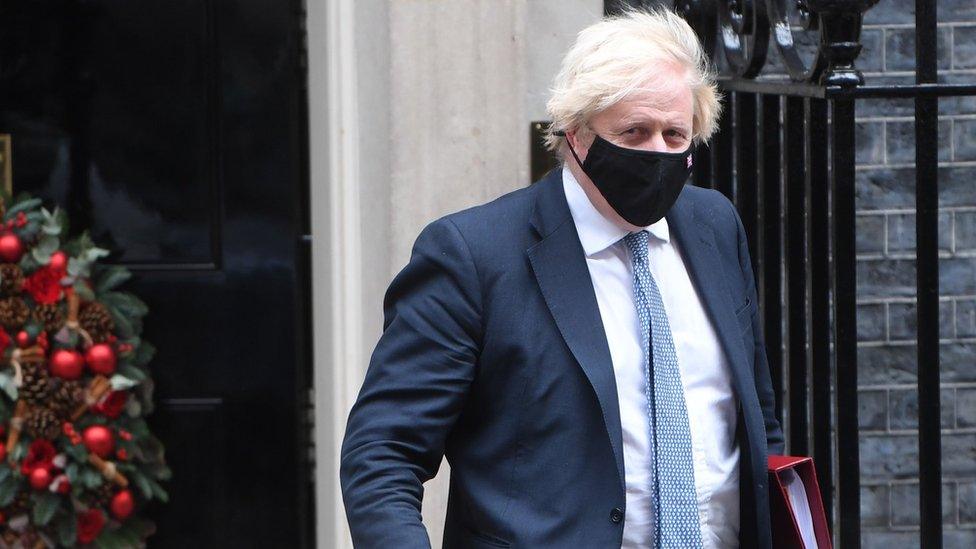
Boris Johnson says the legacy proposals would allow Northern Ireland to "draw a line under the Troubles"
The government insists that will comply with its human rights obligations.
The Irish government, Northern Ireland political parties and victims' organisations flatly reject the proposals, with some sharply critical of the consultation process that has been taking place.
Criticism has also extended to the Council of Europe commissioner for human rights, Dunja Mijatović, and the UN Human Rights Council.
'A certain irony'
Despite the delay in bringing forward legislation, few engaged in the process believe it signals any change of heart by London on the central idea of an amnesty.
Instead it seems to be down to the nitty gritty of how the information recovery body would work.
As reported by the Daily Telegraph recently, the government appears to be examining ways to compel former paramilitaries to participate with information gathering.
It is thought that could involve being prosecuted for failure to co-operate.
One source told BBC News NI: "There's a certain irony here. You won't be prosecuted for murder but you can be prosecuted for not coming forward to the information body."
They added that the "only good thing" that has come out of the limited engagement with government is that everybody has told them they oppose what is proposed.
Another source said while they felt the government still wanted to press ahead, it is possible that things drift and nothing gets done because of more urgent priorities.
However, they felt that would not be sustainable long term as the legacy problem requires solving.
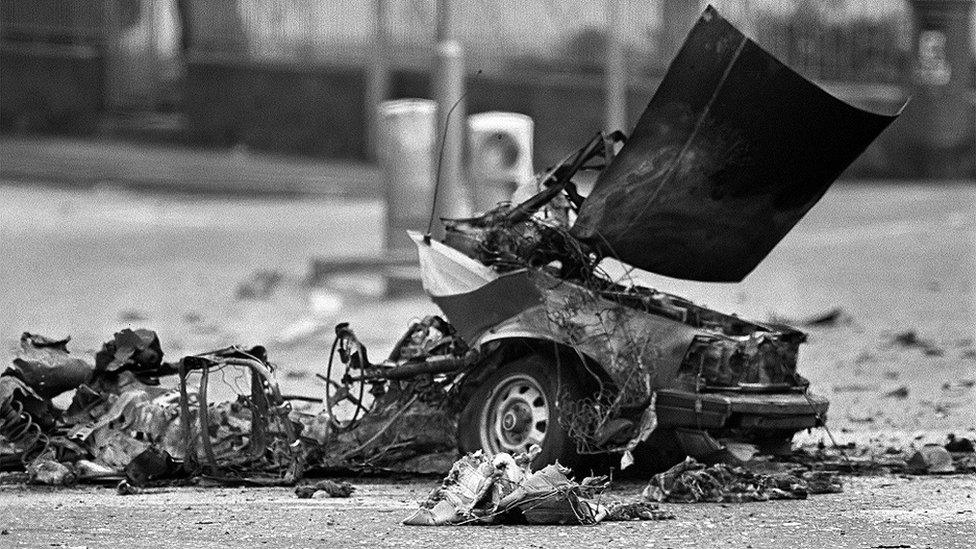
The debate about how to deal with legacy of the Troubles looks like it will continue well into the future
The view is that any legislation would take six months to progress through Parliament, under full scrutiny of both houses, rather than being raced through under accelerated passage.
That would mean it would come into force later than the government intended - it had seen "a window of opportunity" before this May's assembly election.
It also puts any legislation the other side of the next trial involving an Army veteran - and protecting former soldiers has been a significant factor in the formulation of the government's approach.
More prosecutions in progress
David Holden is due to go on trial in January over the manslaughter of Aidan McAnespie, who was shot at an Army checkpoint near Aughnacloy in County Tyrone in 1988.
It is one of seven legacy cases at prosecution stage.
The Public Prosecution Service (PPS) is, however, seeking to discontinue two of them - Soldier F over Bloody Sunday and Soldier B over the shooting of Daniel Hegarty, also in Londonderry in 1972.
The PPS is also yet to decide whether to prosecute another 11 Troubles cases, three of them involving a total of 12 former soldiers.
Those cases do not include consideration of the Operation Kenova investigation into the Army agent within the IRA known by the codename Stakeknife.
During the past 12 months, Troubles legacy cases have made many headlines.
They will continue to do so in 2022.
But to borrow Boris Johnson's phrase, will it be the year that "a line is drawn under the Troubles" by way of controversial legislation?
Related topics
- Published14 July 2021

- Published20 July 2021

- Published30 September 2021
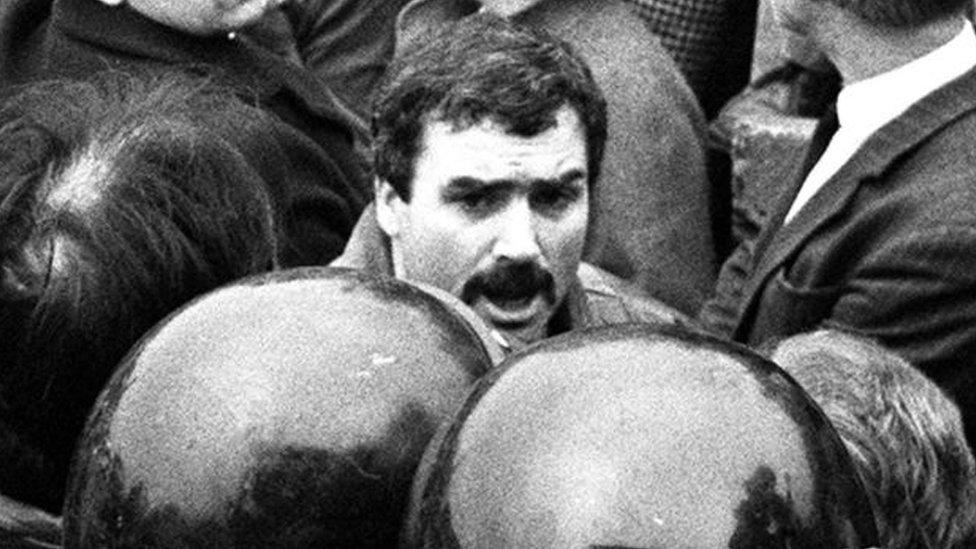
- Published20 August 2021
